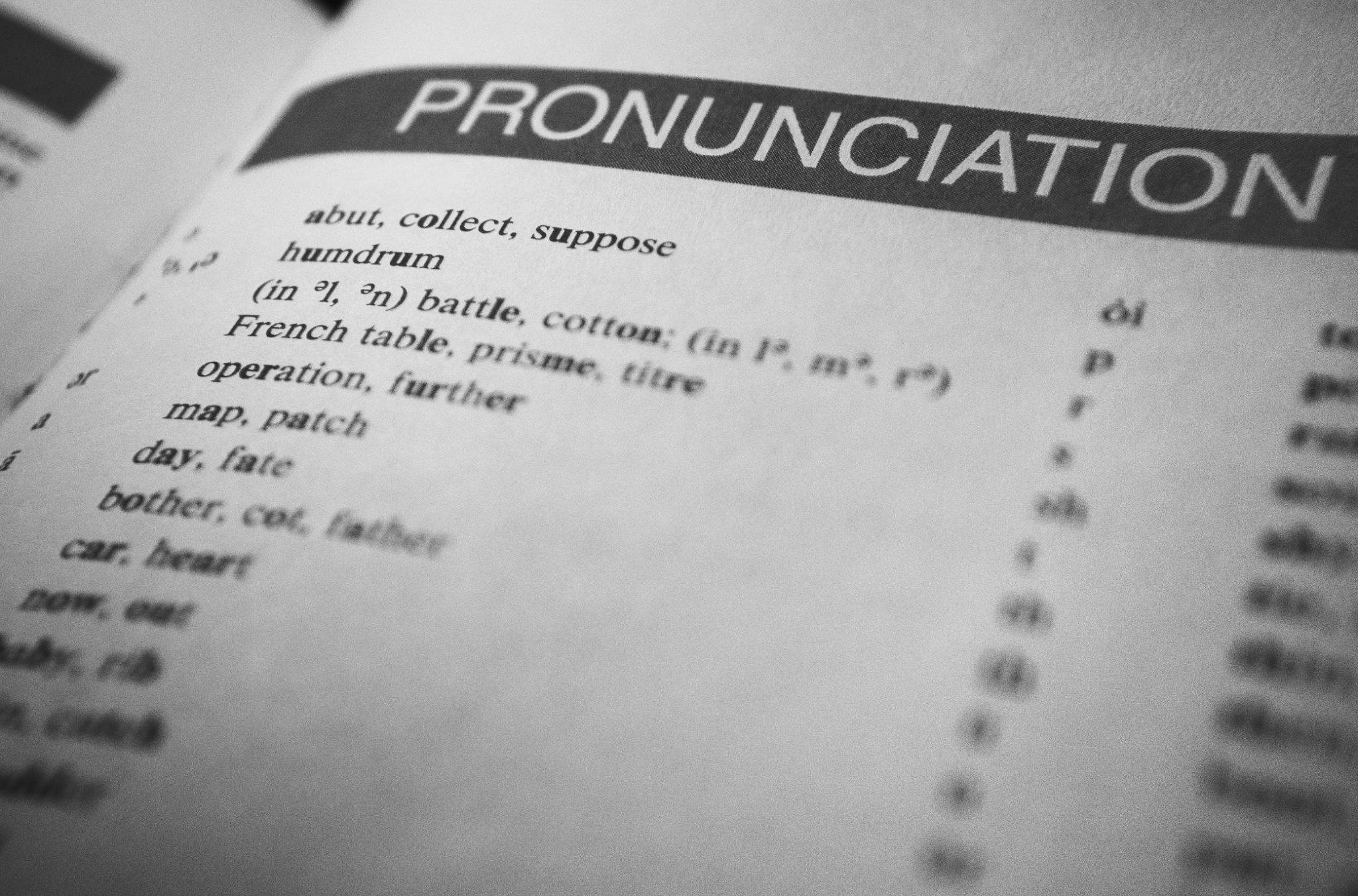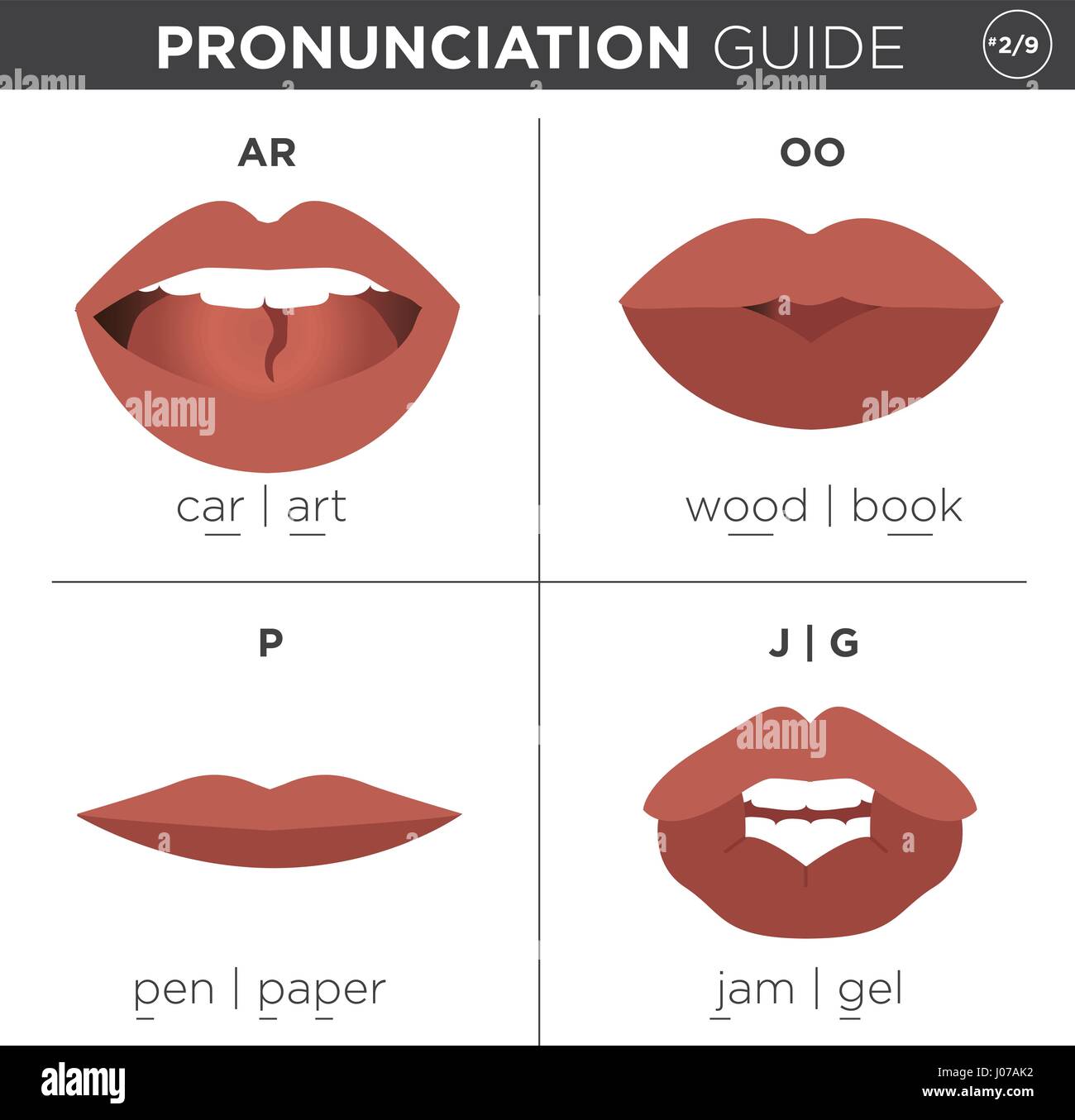Mastering pronunciation is like unlocking a secret code to effective communication. Imagine walking into a room full of people, ready to express yourself confidently without fear of mispronunciation. It’s a powerful feeling, right? Pronounce in a comprehensive guide to mastering pronunciation will help you achieve just that. Whether you're learning a new language, refining your accent, or simply brushing up on your skills, this guide has got your back.
Pronunciation isn’t just about sounding right—it’s about being understood. It’s the difference between being heard and truly connecting with others. In today’s globalized world, clear communication is more important than ever. Whether you're speaking English or another language, mastering pronunciation can open doors and break barriers.
This guide is here to give you the tools, tips, and tricks you need to elevate your pronunciation game. So, whether you're a student, a professional, or someone who just wants to sound more polished, stick around. You're about to embark on a journey that will transform the way you speak.
- Does Toner Help Acne The Ultimate Guide To Clear Skin
- Richard Wolff Net Worth A Comprehensive Guide To His Wealth Career And Influence
Why Pronunciation Matters in Communication
Let’s dive straight into why pronunciation is such a big deal. Think about it—how frustrating is it when you can’t understand someone because of unclear pronunciation? It’s not just about sounding native; it’s about ensuring that your message gets across without confusion. Pronunciation plays a crucial role in effective communication, especially in professional settings.
Studies show that people with better pronunciation skills tend to be perceived as more competent and trustworthy. In fact, a survey conducted by the University of California found that individuals who worked on their pronunciation saw a 30% improvement in their communication skills. That’s huge!
The Impact of Pronunciation on First Impressions
First impressions are everything. When you meet someone for the first time, your pronunciation can either leave a positive or negative mark. Let’s face it—no one wants to be remembered as the person who mispronounced "espresso" in a coffee shop. By mastering pronunciation, you instantly boost your confidence and make a lasting impression.
- Remoteiot Platform Ssh Free Download And Comprehensive Guide
- Remoteiot Vpc Network A Comprehensive Guide To Building Secure And Scalable Cloud Architectures
Common Pronunciation Mistakes and How to Avoid Them
Alright, let’s talk about the elephant in the room—common pronunciation mistakes. We’ve all been there, stumbling over words like "mischievous" or "February." But don’t worry; you’re not alone. Here’s a quick rundown of some of the most common errors and how to avoid them:
- Confusing similar-sounding words (e.g., "their," "there," and "they’re")
- Forgetting to emphasize the correct syllable (e.g., "re-cord" vs. "re-CORD")
- Not paying attention to silent letters (e.g., "knife" or "island")
- Rushing through complex words (e.g., "pronunciation")
The key to avoiding these mistakes is practice. Take your time with each word, break it down into syllables, and listen to native speakers. You’ll be surprised at how quickly you improve.
How to Pronounce Words Correctly: Tips and Tricks
Now that we’ve covered the basics, let’s dive into some practical tips for improving your pronunciation. Here’s a step-by-step guide to help you pronounce words correctly:
First things first—listen. Yes, I said listen. Pay attention to how native speakers pronounce words. You can do this by watching movies, listening to podcasts, or even engaging in conversations with fluent speakers. The more you expose yourself to correct pronunciation, the better you’ll get.
Breaking Down Words into Syllables
Breaking down words into syllables is a game-changer. For example, take the word "pronunciation." Instead of trying to say it all at once, break it down into smaller parts: pro-nun-ci-a-tion. This makes it easier to focus on each part and ensures you’re pronouncing it correctly.
Here’s a quick tip: Use a dictionary or pronunciation app to check the syllable breakdown of tricky words. Most apps also provide audio examples, which can be incredibly helpful.
Mastering Pronunciation Through Practice
Practice makes perfect, and this couldn’t be truer when it comes to pronunciation. Consistent practice is the key to mastering any skill, and pronunciation is no exception. Here are some fun and effective ways to practice:
- Read aloud daily—start with simple texts and gradually move to more complex ones.
- Record yourself speaking and compare it to native speakers.
- Engage in conversations with language partners or tutors.
- Use tongue twisters to improve clarity and fluency.
Remember, consistency is key. Even 10 minutes of daily practice can make a significant difference over time.
The Role of Technology in Improving Pronunciation
Technology has revolutionized the way we learn and improve our pronunciation. From apps to online courses, there are countless resources available to help you master this skill. Here are a few tools you might want to explore:
- Pronunciation apps like ELSA Speak and Speechling
- Online platforms like Duolingo and Babbel
- Voice recognition software to track your progress
These tools not only provide instant feedback but also make learning fun and engaging. Plus, they’re accessible anytime, anywhere, making it easier to fit practice into your busy schedule.
Using AI to Enhance Pronunciation Skills
While we’re on the topic of technology, let’s talk about AI. Yes, artificial intelligence can actually help you improve your pronunciation. AI-powered tools analyze your speech patterns and provide personalized feedback to help you refine your skills. It’s like having a personal tutor at your fingertips.
Understanding the Science Behind Pronunciation
Ever wondered why some people seem to have a natural knack for pronunciation while others struggle? It all comes down to science. Pronunciation involves a combination of auditory processing, muscle memory, and cognitive skills. Understanding how these elements work together can help you improve more effectively.
For example, auditory processing plays a crucial role in recognizing and reproducing sounds. By training your ears to identify subtle differences in pronunciation, you can improve your ability to mimic native speakers. Muscle memory, on the other hand, helps you form the correct mouth and tongue positions for different sounds.
The Importance of Phonetics in Pronunciation
Phonetics is the study of speech sounds and their production. It’s an essential component of mastering pronunciation. By learning the basics of phonetics, you can better understand how sounds are formed and how to produce them correctly.
Here’s a quick phonetic tip: Pay attention to vowel and consonant sounds. For instance, the "th" sound in English is often mispronounced by non-native speakers. Practice forming the correct tongue position to produce this sound accurately.
Overcoming Challenges in Pronunciation
No journey is without its challenges, and mastering pronunciation is no exception. Some common obstacles include:
- Lack of exposure to native speakers
- Difficulty with certain sounds or accents
- Self-consciousness or fear of making mistakes
The good news is that these challenges can be overcome with the right mindset and approach. Surround yourself with supportive language communities, embrace your mistakes as learning opportunities, and celebrate your progress along the way.
Building Confidence in Your Pronunciation
Confidence is key when it comes to pronunciation. The more you practice and expose yourself to different situations, the more confident you’ll become. Start small—practice in front of a mirror, record yourself, or engage in low-pressure conversations with friends.
Remember, even native speakers make mistakes. The goal isn’t perfection; it’s progress. So, don’t be too hard on yourself. Celebrate every small victory, and keep pushing forward.
Expert Tips for Mastering Pronunciation
Let’s wrap things up with some expert tips to help you master pronunciation:
- Set realistic goals and track your progress
- Seek feedback from trusted sources, such as language tutors or native speakers
- Stay consistent with your practice routine
- Expose yourself to diverse accents and dialects
Mastering pronunciation is a journey, not a destination. It requires patience, persistence, and a willingness to learn. But with the right tools and mindset, you can achieve fluency and confidence in no time.
Conclusion: Take Action and Transform Your Pronunciation
In conclusion, mastering pronunciation is an invaluable skill that can enhance your communication, boost your confidence, and open doors to new opportunities. By understanding the importance of pronunciation, avoiding common mistakes, and practicing consistently, you can transform the way you speak.
So, what are you waiting for? Take action today! Start incorporating these tips into your daily routine, engage with the resources mentioned, and don’t forget to share your progress with others. Together, we can build a community of confident communicators.
And hey, if you found this guide helpful, feel free to leave a comment or share it with your friends. The more people we can help, the better!
Table of Contents
- Why Pronunciation Matters in Communication
- Common Pronunciation Mistakes and How to Avoid Them
- How to Pronounce Words Correctly: Tips and Tricks
- Mastering Pronunciation Through Practice
- The Role of Technology in Improving Pronunciation
- Understanding the Science Behind Pronunciation
- Overcoming Challenges in Pronunciation
- Expert Tips for Mastering Pronunciation
- Conclusion: Take Action and Transform Your Pronunciation
- Catriona Gray And Sam Milby A Closer Look At Their Relationship And Impact
- Hdhub4u South Indian Hindi Dubbed Your Ultimate Guide To Highquality Entertainment


